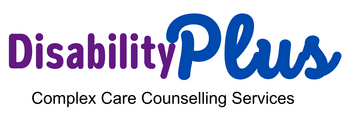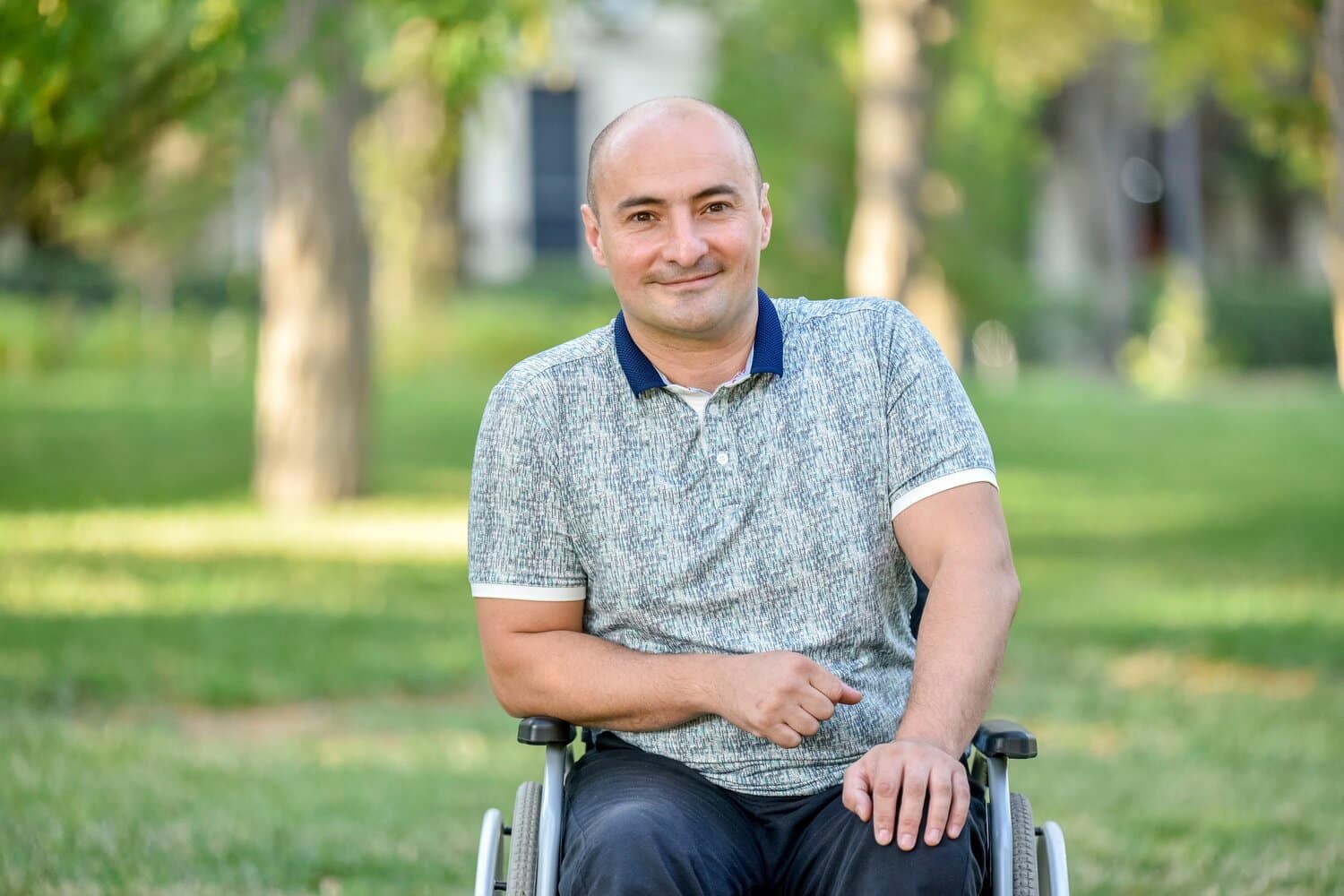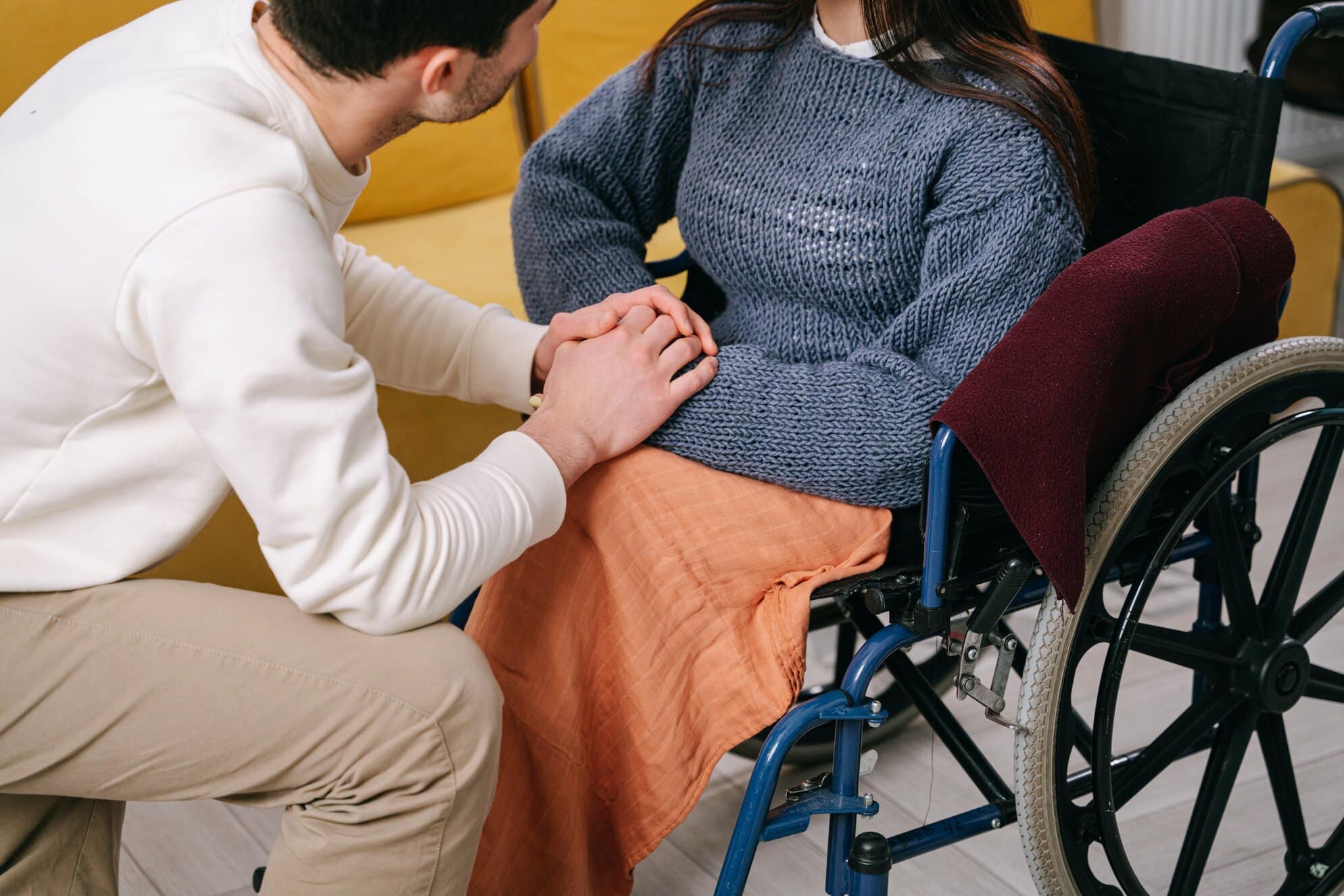
Muscular Dystrophy, Mental Health Counselling
Living with muscular dystrophy presents unique challenges that can impact your emotional well-being.
At DisabilityPlus, we understand these challenges deeply.
Our team of experienced counsellors, with lived experience of complex disabilities, provides a safe and supportive space to explore your feelings, develop coping strategies, and navigate the complexities of life with muscular dystrophy.
We’re here to help you build resilience, find strength, and live a fulfilling life.
- Only Quadriplegic Psychologist in Europe
- All our therapists have Complex Disabilities
- Self-Paid for almost Immediate Start
- Free Funding (Most of England & Wales)
Enquiries
Self-Referral
Muscular Dystrophy and Daily Life: How Counselling Can Support You
Living with muscular dystrophy (MD) can bring unique challenges to many areas of your life.
Our counselling services provide a safe and supportive space to help you navigate these challenges, build coping strategies, and live a fulfilling life.
We can help you manage MD’s emotional and social impact, and develop confidence.
We can also support you in exploring your identity, building strong relationships, and achieving your goals.
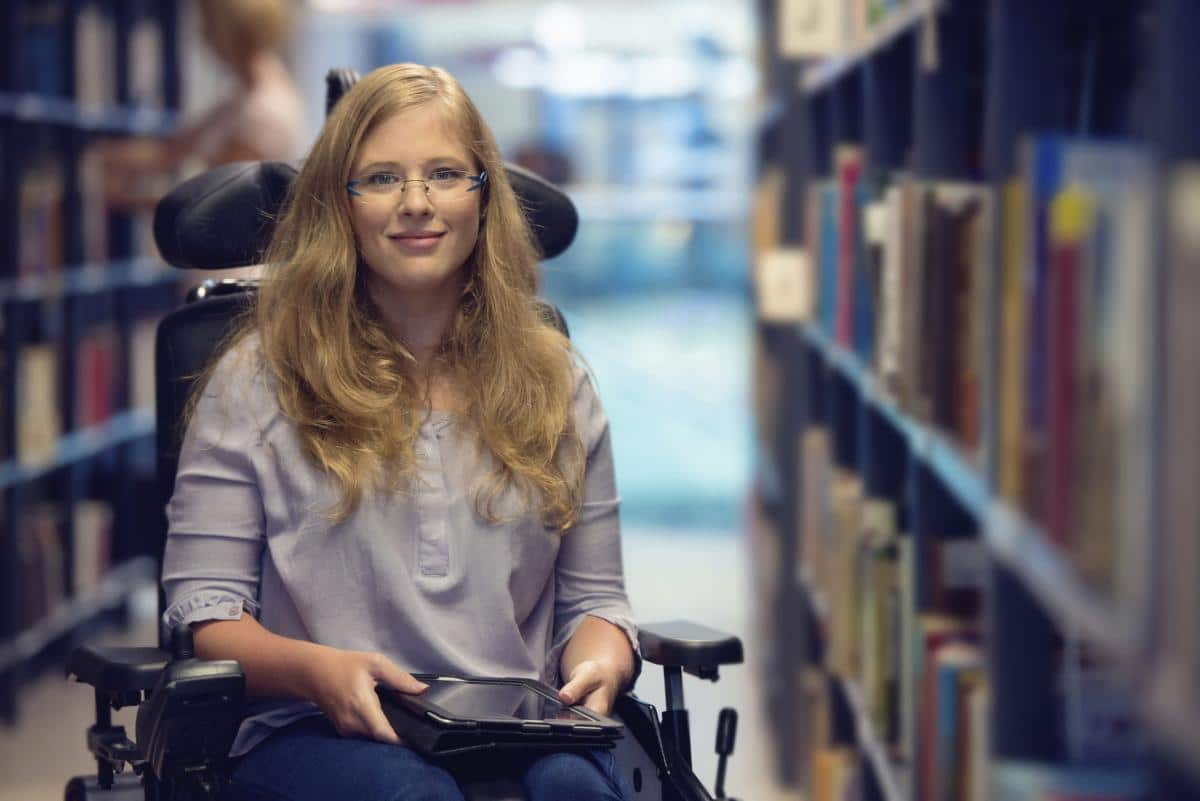
Overcome Challenges and Live a Fulfilling Life
We address MD’s physical, emotional, and social impacts, providing a safe space to explore feelings, build self-esteem, and develop coping strategies.
We can assist with improving communication skills, managing pain and fatigue, and overcoming social isolation.
We also help you address stigma and advocate for your education, employment, and community access needs.
Our goal is to empower you to live a fulfilling and independent life.
Free Funding & Self-Pay Options
Free Funding
We understand the financial challenges of living with MD.
Disability Plus offers free funding application assistance for muscular dystrophy counselling in most of England and Wales.
Click the “Free Funding” tab below to check your eligibility.
Start Counselling Today by Self-Paying
With our self-pay option, you can begin your counselling journey almost immediately wherever you live.
There are no waiting lists or GP reports.
“Click Self-paid tab below for pricing”
Professional Organisations
We proudly collaborate with:
- Employment Support Companies
- Solicitors
- GPs
- Mental Health Providers
- Audiologists
- Schools & Universities
- Charities
And many more Professionals & Organisations to ensure Comprehensive Care for our Clients.
Free Funding
Are you an adult (18+) living with Muscular Dystrophy and struggling to find the support you need?
We understand that navigating the healthcare system can be challenging, especially if NHS local mental health services have turned you away as too complex.
We’ll work with you to determine eligibility and then make a funding application for you, relieving your pressure.
While funding approval varies by region, we’ll explore every avenue and connect you with the most suitable resources if your NHS region does not support us.
Self-Paid
We believe everyone should have access to counselling. That’s why we offer reduced rates to the public, with sessions starting at just £50 for 50 minutes.
Our Fees:
- Initial Session: £50
- Following Sessions: £180 for every three sessions after that.
Extended Sessions:
For clients using assistive communication devices, we offer longer sessions (70 minutes) for £90 per session or £220 for a package of 3.
Payment Plans Available:
We understand that self-paying for muscular dystrophy counselling can be challenging.
If you need assistance, please contact us to discuss payment plan options.
Professional Referrals
DisabilityPlus welcomes referrals from professional organisations that encounter individuals with MD who need specialist counselling.
We value collaborative relationships with healthcare providers, social workers, case managers, and other professionals dedicated to improving the well-being of people with cerebral palsy.
Referring a client is simple. You can contact us directly by phone or email to discuss the client’s needs and ensure a smooth transition to our services.
We will work closely with you to gather relevant information, obtain necessary consent, and coordinate care effectively.
Our team is committed to providing timely and responsive communication throughout the referral process, ensuring a seamless experience for the referring organisation and the individual seeking support.
Enquiries
Self-Referral
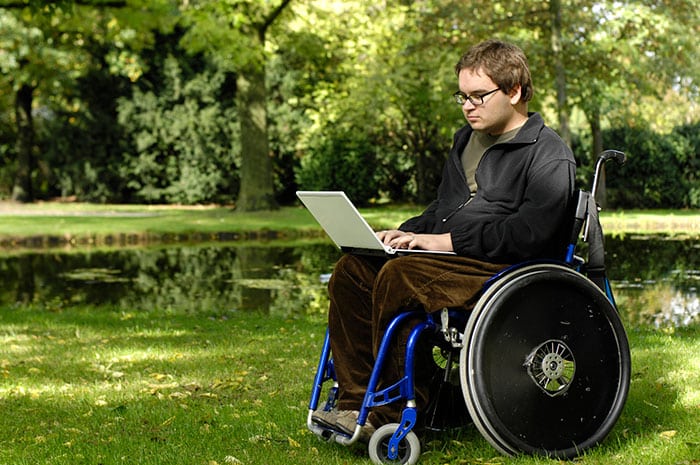
Ableism?
Ableism and Muscular Dystrophy: How Counselling Can Help
Ableism, the discrimination and prejudice against people with disabilities, has a profound impact on the mental health and well-being of individuals with muscular dystrophy (MD).
It can lead to feelings of isolation, shame, anger, and low self-worth. Muscular dystrophy counselling offers a vital space to address these challenges, build resilience, and foster self-acceptance.
The Unique Challenges of Ableism with MD
Ableism manifests in many ways for people with MD, creating obstacles that affect their emotional well-being and quality of life.
Social Interactions: People with MD often encounter assumptions about their abilities, patronising behaviour, or exclusion from social activities.
This can lead to feelings of loneliness and isolation. Counselling can help you develop strategies for navigating social situations, asserting your needs, and building meaningful connections.
Physical Barriers: The built environment is often not designed to meet the needs of people with MD.
Inaccessible buildings, transportation, and public spaces can restrict independence and lead to frustration and social exclusion.
Counselling can help you cope with these challenges, advocate for accessibility, and find ways to participate fully in your community.
Healthcare: Ableism within the healthcare system can result in inadequate care, dismissive attitudes, and a lack of understanding of the specific needs of people with MD.
This can create anxiety and hinder effective treatment. Counselling can empower you to advocate for your healthcare needs and navigate the complexities of the medical system.
Employment: People with MD may face discrimination in the workplace, such as being overlooked for promotions or having requests for flexible working arrangements denied.
This can limit career advancement and impact financial security and self-esteem. Counselling can help you address these challenges, develop self-advocacy skills, and explore career paths that align with your abilities and interests.
Progression of MD: As MD progresses, individuals may experience increasing physical limitations and a greater need for assistance.
This can lead to feelings of loss, grief, and dependence. Counselling can support navigating these changes, adapting to new challenges, and maintaining a sense of identity and purpose.
The Emotional Impact of Ableism
Confronting ableism takes a toll on mental health. Muscular dystrophy counselling offers a safe and supportive environment to:
Process your emotions: Explore feelings of anger, sadness, frustration, and grief related to ableism and the challenges of living with MD.
Develop coping strategies: Learn to manage anxiety, depression, and stress related to ableism and its impact on your life.
Challenge internalised ableism: Address negative self-perceptions and build self-esteem and self-acceptance.
Advocate for yourself: Find your voice and develop assertiveness skills to challenge discrimination and advocate for your needs.
Build resilience: Cultivate inner strength and a positive outlook to navigate challenges and live a fulfilling life.
Anxiety?
Anxiety and Muscular Dystrophy: Finding Support and Coping Strategies
Living with muscular dystrophy (MD) can be a source of significant anxiety.
The unpredictable nature of the condition, the progression of physical changes, and the challenges of navigating a world that isn’t always accessible can all contribute to feelings of worry, fear, and uncertainty.
Muscular dystrophy counselling provides a safe and supportive space to explore these anxieties, develop coping mechanisms, and find ways to manage your mental well-being.
Understanding Anxiety in the Context of MD
Anxiety can manifest in different ways for people with MD. Here are some everyday experiences:
Anxiety about the future: Uncertainty about the progression of MD, potential loss of independence, and future care needs can lead to significant worry and fear.
Social anxiety: Concerns about being judged or facing discrimination due to physical limitations can make social situations feel daunting.
Health anxiety: Anxiety related to medical appointments, treatments, and potential complications can be overwhelming.
Performance anxiety: Worrying about keeping up with daily tasks, maintaining employment, or fulfilling social roles can lead to stress and anxiety.
How Counselling Can Help
Muscular dystrophy counselling offers specialised support for managing anxiety in the context of MD.
Here’s how we can help:
Explore your anxieties: We’ll provide a safe and non-judgmental space to discuss your fears and concerns, helping you understand the root causes of your stress.
Develop coping strategies: We’ll help you develop practical coping mechanisms, such as relaxation techniques, mindfulness exercises, and methods for managing stress and worry.
Challenge negative thoughts: We’ll help you identify and challenge negative thought patterns that contribute to anxiety, replacing them with more positive and realistic thoughts.
Build self-esteem: We’ll support you in developing self-compassion and building confidence in your ability to cope with challenges.
Focus on the present: We’ll help you practice mindfulness techniques to stay grounded in the present moment and reduce worries about the future.
Connect with others: We can connect you with support groups and communities where you can share experiences and find encouragement from others with MD.
Muscular dystrophy counselling can help you gain control over your anxiety, improve your quality of life, and focus on living a fulfilling life despite the challenges of MD.
Misdiagnoses?
Misunderstanding Abilities and Muscular Dystrophy: Advocating for Yourself
People with muscular dystrophy (MD) often face the frustrating experience of having their abilities underestimated or misunderstood. This can stem from a lack of awareness about MD and its diverse effects on individuals.
Why Misunderstandings Occur
Several factors contribute to misunderstandings about the abilities of people with MD:
Communication Challenges: Some types of MD can affect speech and motor skills. These challenges can sometimes be misinterpreted as a lack of understanding or cognitive ability.
Physical Limitations: Difficulties with movement and coordination can make it challenging to perform specific tasks or express oneself in conventional ways. This can lead to assumptions about a person’s overall capabilities.
Fatigue and Pain: MD often involves chronic pain and fatigue. These can significantly impact concentration, energy levels, and the ability to engage in activities, potentially leading to misinterpretations about someone’s willingness or capacity to participate.
Social and Emotional Factors: Social isolation, anxiety, and depression, which are common in people with MD, can affect how a person interacts with others and expresses themselves, potentially leading to misunderstandings about their abilities and personality.
Lack of Awareness: A lack of understanding about MD among educators, healthcare professionals, employers, and the general public can perpetuate stereotypes and lead to inaccurate assumptions about the capabilities of people with MD.
The Impact of Misunderstandings
These misunderstandings can have significant consequences:
Limited Opportunities: People with MD may be excluded from educational, social, and employment opportunities due to misconceptions about their abilities.
Damaged Self-Esteem: Being underestimated or questioning your abilities can erode self-esteem and create a sense of self-doubt.
Reduced Independence: Misunderstandings can lead to unnecessary dependence on others and restrict a person’s ability to live a whole, independent life.
Advocating for Yourself: Muscular dystrophy counselling can equip you with the tools to challenge these misunderstandings and advocate for yourself.
Build Self-Awareness: Gain a deeper understanding of your strengths and challenges, and learn to communicate your needs effectively.
Develop Assertiveness Skills: Learn to express yourself confidently and advocate for your rights and needs in various settings.
Challenge Misconceptions: Develop strategies for educating others about MD and challenging stereotypes and assumptions.
Build Resilience: Develop coping mechanisms to manage the emotional impact of being underestimated or misunderstood.
Muscular dystrophy counselling can empower you to challenge misconceptions, advocate for yourself, and live a fulfilling life on your terms.
Perceptions?
Perceptions and Muscular Dystrophy: Challenging Misconceptions and Building Resilience
The way people perceive muscular dystrophy (MD) significantly impacts the lives of those living with the condition.
Often rooted in misinformation or lack of understanding, these perceptions can create numerous challenges and barriers.
How Perceptions Shape Experiences
Social Interactions: People with MD often encounter assumptions about their abilities, patronising behaviour, or exclusion from social activities. This can lead to feelings of loneliness, isolation, and low self-worth.
Employment: Misconceptions about MD can lead to discrimination in the workplace. Due to biases about their capabilities, individuals may be overlooked for opportunities, denied accommodations, or face unfair treatment.
This can limit career prospects and impact financial security and self-esteem.
Education: Misperceptions about MD in educational settings can result in inadequate support, lowered expectations, and a lack of access to appropriate resources, which can hinder academic progress and personal development.
Access to Services: Negative perceptions about MD can influence the allocation of resources and support, making it difficult to access healthcare, suitable housing, transportation, and other essential services.
Social Isolation and Stigma: When society views MD through a lens of limitation rather than ability, individuals may feel excluded, misunderstood, and stigmatised.
This can lead to social isolation and have a detrimental impact on mental health and well-being.
The Emotional Impact of Perceptions
Constantly confronting negative perceptions and misconceptions can take a significant emotional toll on individuals with MD. It can lead to:
Stress and Anxiety: Worrying about how others perceive you and facing discrimination can contribute to stress and anxiety.
Depression: Feeling undervalued, dismissed, or excluded can lead to feelings of sadness, hopelessness, and depression.
Low Self-Esteem: Internalizing negative societal perceptions can erode self-esteem and create a sense of self-doubt.
Challenging Perceptions and Building Resilience
Muscular dystrophy counselling provides a supportive space to:
Process Emotions: Explore the feelings of frustration, anger, and sadness that arise from facing negative perceptions.
Challenge Internalised Ableism: Address negative self-perceptions and build self-esteem and self-acceptance.
Develop Coping Strategies: Learn to manage stress, anxiety, and depression related to societal perceptions and discrimination.
Advocate for Yourself: Find your voice and develop assertiveness skills to challenge misconceptions and advocate for your needs and rights.
Build a Support Network: Connect with others who understand the challenges of living with MD and find encouragement and support.
Muscular dystrophy counselling can empower you to challenge negative perceptions, build resilience, and live a fulfilling life in a world that doesn’t always understand.
Health?
Health Anxiety and Muscular Dystrophy: Finding Support and Peace of Mind
Living with muscular dystrophy (MD) can bring about health anxieties. The unpredictable nature of the condition, the progression of physical changes, and the challenges of navigating a world that isn’t always accessible can create worry and uncertainty about your health.
Muscular dystrophy counselling provides a safe and supportive space to explore these anxieties, develop coping mechanisms, and find ways to manage your well-being.
Understanding Health Anxiety in the Context of MD
Health anxiety can manifest in different ways for people with MD. Here are some everyday experiences:
Fear of progression: Anxiety about how your MD will progress, the potential loss of abilities, and the impact on your future can be a significant source of worry.
Medical anxieties: Medical appointments, treatments, and potential complications can trigger anxiety and fear.
Uncertainty about the future: Uncertainty about your health, your ability to maintain independence, and your future care needs can lead to significant anxiety.
Body vigilance: Constantly monitoring your body for changes and symptoms can heighten anxiety and make it difficult to relax and enjoy life.
Loss of Autonomy
Loss of Independence and Muscular Dystrophy: Reclaiming Your Autonomy
For many people with muscular dystrophy (MD), the gradual loss of physical abilities can lead to a significant loss of independence.
This can profoundly affect emotional well-being and create frustration, sadness, and anger.
Muscular dystrophy counselling provides a safe and supportive space to explore these emotions, develop coping strategies, and find ways to reclaim your autonomy.
The Impact of Losing Independence
The loss of independence associated with MD can manifest in different ways:
Daily Tasks: As MD progresses, you may require assistance with activities like dressing, bathing, eating, or getting around.
This can lead to feelings of dependence and a loss of control over your own life.
Decision-Making: You may encounter situations where your choices and preferences are not fully respected or where you feel your voice isn’t being heard.
This can be incredibly challenging when making decisions about your care or future.
Social Participation: Physical limitations and accessibility barriers can restrict one’s ability to participate in social activities, education, or employment, leading to feelings of isolation and exclusion.
Financial Dependence: The costs associated with managing MD, such as medical expenses, adaptive equipment, and home modifications, can create financial strain and dependence on others.
Financial Strain
Financial Strain and Muscular Dystrophy: Finding Support and Managing Stress
Living with muscular dystrophy (MD) can often bring financial challenges. The costs of managing the condition, such as medical treatments, therapies, equipment, and personal care, can be significant.
This financial burden can lead to ongoing stress and anxiety, impacting your overall well-being.
The Impact of Financial Strain
The financial pressures associated with MD can affect your mental health in several ways:
Chronic Stress: Constantly worrying about medical bills, equipment costs, and affording necessary care can lead to chronic stress, which can contribute to anxiety, depression, and other mental health challenges.
Limited Opportunities: Financial constraints can limit access to opportunities that enhance quality of life, such as recreational activities, social events, and educational programs.
This can lead to feelings of isolation and exclusion.
Employment Challenges: Finding and maintaining employment can be challenging for people with MD due to physical limitations and workplace discrimination.
This can exacerbate financial strain and impact self-esteem.
Home Modifications: Adapting your living environment to be more accessible can be expensive, adding to the financial burden.
This can create stress and anxiety, especially when trying to balance these costs with other essential needs.
Depression?
Depression and Muscular Dystrophy: Finding Hope and Healing
Living with a chronic illness like muscular dystrophy (MD) can bring about a range of emotions, and it’s not uncommon to experience periods of depression.
Understanding Depression in the Context of MD
Depression in people with MD can be complex and multifaceted. It can be triggered by:
Grief and loss: Grieving the loss of physical abilities, independence, and the life you envisioned can lead to profound sadness and depression.
Social isolation: Difficulties with mobility and accessibility can lead to social isolation, which is a significant risk factor for depression.
Chronic pain: Managing chronic pain and discomfort can be emotionally draining and contribute to feelings of hopelessness and depression.
Changes in identity: Adjusting to changes in your body and abilities can impact your sense of self and lead to depression.
Ableism and stigma: Experiencing discrimination and negative attitudes can erode self-esteem and contribute to depression.
How Counselling Can Help
Muscular dystrophy counselling offers specialised support for managing depression in the context of MD. Here’s how we can help:
Explore your feelings: We’ll provide a safe and compassionate space to talk about your sadness, grief, and other emotions related to depression and MD.
Develop coping strategies: We’ll help you develop healthy coping mechanisms to manage difficult emotions, such as mindfulness techniques, relaxation exercises, and resilience-building strategies.
Challenge negative thoughts: We’ll help you identify and challenge negative thought patterns that contribute to depression, replacing them with more positive and realistic perspectives.
Build self-esteem: We’ll support you in developing self-compassion and appreciating your strengths and abilities.
Connect with your values: We’ll help you reconnect with your values and find meaning and purpose in your life, even with the challenges of MD.
Develop a support network: We can connect you with support groups and communities where you can share experiences and find encouragement from others with MD.
Muscular dystrophy counselling can help you navigate the complex emotions associated with depression, find hope amidst challenges, and build a more fulfilling life.
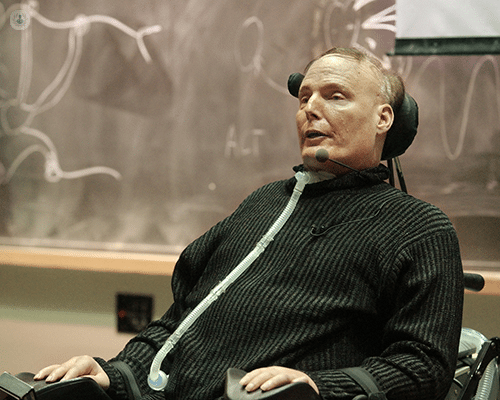
Transforming Lives Through Counselling
Discover how our specialised support has empowered individuals with muscular dystrophy to find hope, build resilience, and achieve their goals.
“I’d tried counselling before, but it never seemed to click. My previous counsellor didn’t understand the challenges of living with muscular dystrophy.
It was frustrating! But here, it’s different. My psychologist gets it. He understands MD’s physical and emotional impact; he helped me in ways I never thought possible.”
“I was diagnosed with muscular dystrophy when I was a teenager. It was a difficult time for me, and I struggled with my self-esteem. Kevin helped me to accept my condition and build my confidence”
“I was struggling to come to terms with my diagnosis. I felt like I had lost my identity. Liz helped me to explore my feelings and to find new ways to define myself.”
“I was feeling very isolated and alone. I didn’t know anyone else who had muscular dystrophy. Kevin helped me connect with others who understood what I was going through. I now have a strong support network.”
“Having a quadriplegic psychologist made all the difference. They helped me see that my disability doesn’t define me. I’m learning to embrace my identity and focus on what I can do, not what I can’t.”
“I was feeling very overwhelmed by the challenges of living with muscular dystrophy. My counsellor helped me to break down the challenges into smaller, more manageable steps.
“I was experiencing a lot of anxiety about the future. I was worried about how my physical situation would progress and how I would be able to care for myself.
Sue helped me to develop coping mechanisms for managing my anxiety and to focus on the present moment.”
“My psychologist has been a lifeline. He helped me navigate the emotional ups and downs of living with muscular dystrophy, and he gave me practical strategies for dealing with everyday challenges.”
Our Posts

Mobile
01932881849
Self-Pay
Carers
Free Funding
Organisations
Find the Right Support for Your Journey
Select your counselling service
Muscular Dystrophy, Mental Health Counselling
The Daily Challenges of Muscular Dystrophy: How We Can Help
Living with muscular dystrophy presents unique challenges that can impact your emotional well-being. At DisabilityPlus, we understand these challenges deeply. Our team of experienced counsellors, with lived experience of complex disabilities, provides a safe and supportive space to explore your feelings, develop coping strategies, and navigate the complexities of life with muscular dystrophy. We’re here to help you build resilience, find strength, and live a fulfilling life.
Specialist understanding of Muscular Dystrophy
Wouldn’t it be helpful to talk to someone who truly understands the ups and downs of living with muscular dystrophy? Our counsellors offer support with empathy and lived experience.
Supporting all Types of Muscular Dystrophy
Duchenne muscular dystrophy, Becker muscular dystrophy, Myotonic dystrophy, Facioscapulohumeral, Limb-girdle muscular dystrophy and many more.
Supportive Counselling
- Only Quadriplegic Psychologist in Europe
- All Our Counsellors have Complex Disabilities
- Self-Paid for Immediate Start
- Free Funding Applications (Most of England & Wales)
Ask us a Question
What Clients Say about us
Counselling Fees
Self-Refer Today
Organisations Referral

Muscular Dystrophy: Finding Strength in Mind and Spirit
Living with muscular dystrophy means navigating physical changes and emotional challenges. It requires strength, resilience, and a deep understanding of one’s own needs. At DisabilityPlus, we recognise the courage it takes to face each day and is here to provide the specialised support you deserve.
Finding the Right Counselling for You
We understand, because we have lived experiences, how we help:
- Cope with Change: Process grief and loss, adapt to your changing body, and find a new purpose.
- Build Resilience: Develop coping strategies for anxiety and depression. Cultivate inner strength and find joy.
- Stay Independent: Support you in Overcoming challenges with mobility and daily life.
- Live Fully: Set goals, pursue your passions, and live a meaningful life.
- Challenge Ableism: Process experiences of discrimination and advocate for yourself.
- Understand MD’s Challenges: Get support tailored to your specific needs and the progression of your condition.
- Address Body Image: Build self-acceptance and confidence as your body changes.
- Plan for the Future: Address concerns and decide about your long-term care.
- Find Meaning and Purpose: Explore your values and find new ways to live fulfilling lives.
- Develop a Positive Outlook: Cultivate resilience and focus on your strengths.

Session Fees/Pricing
We believe everyone should have access to counselling. That’s why we offer reduced rates to the public, with sessions starting at just £50 for 50 minutes.
Our Fees:
Initial Session: £50
Following Sessions: £180 for every three sessions after that.
Extended Sessions:
For clients using assistive communication devices, we offer longer sessions (70 minutes) for £90 per session or £220 for a package of 3.
Payment Plans Available:
We understand that self-paying for therapy can be challenging.
If you need assistance, please contact us to discuss payment plan options.

Free Funding
Are you worried about the cost of counselling?
We offer complimentary assistance with funding applications for eligible individuals in England and Wales. See our criteria below.
Criteria
Are you an adult (18+) living with Muscular Dystrophy residing in England or Wales and struggling to find the support you need?
We understand that navigating the healthcare system can be challenging, especially if NHS local mental health services have turned you away as too complex.
We’ll work with you to determine eligibility and then make a funding application for you, relieving your pressure.
While funding approval varies by region, we’ll explore every avenue and connect you with the most suitable resources if your NHS region does not support us.
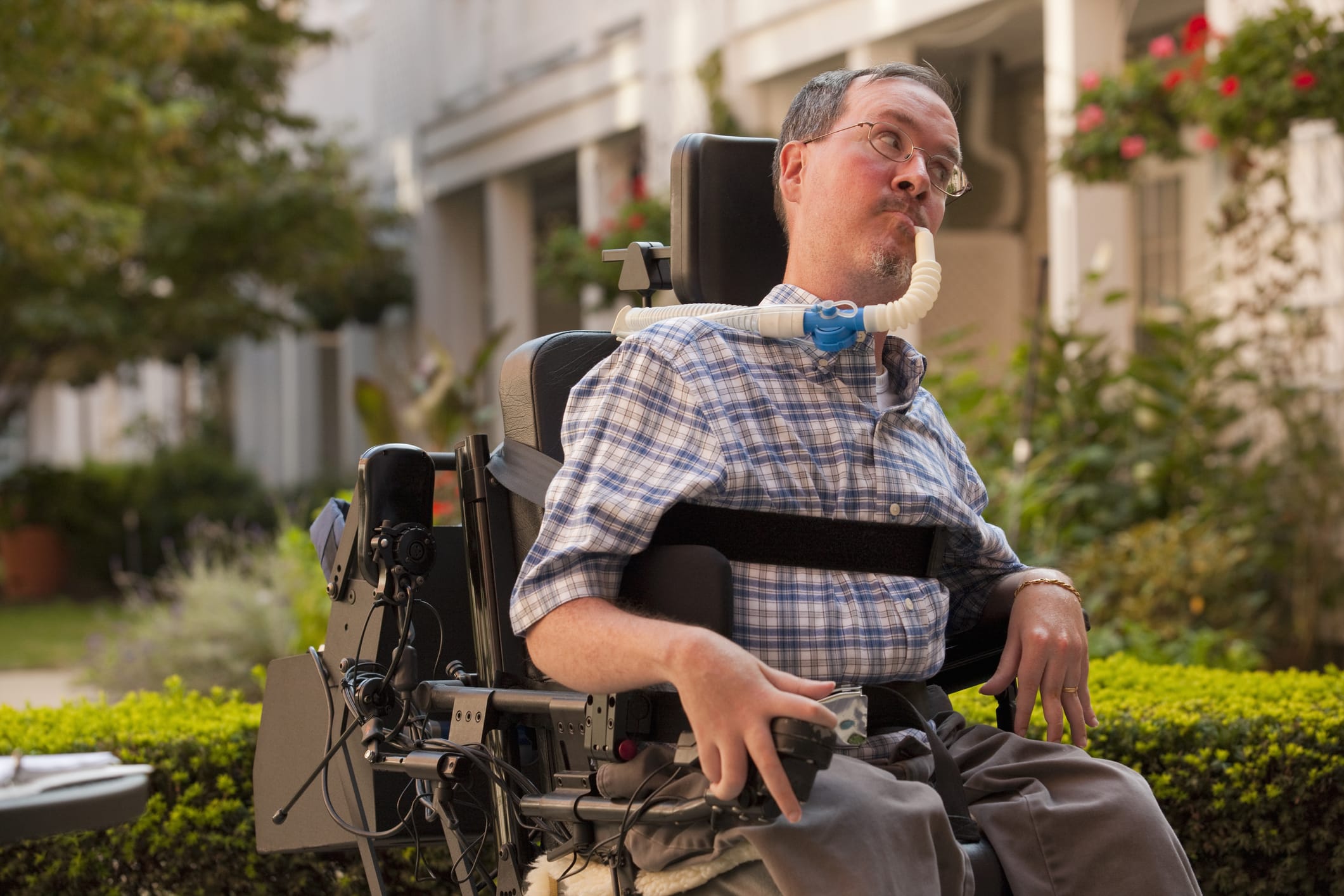
Professional Referrals
We proudly collaborate with:
- Employment Support Companies
- Solicitors
- GPs
- Mental Health Providers
- Rehabilitation Centres
- Schools & Universities
- Charities
Self-Refer
Self-Refer
Referrals
Transforming Lives Through Counselling
Discover how our specialised support has empowered individuals with MD to find hope, build resilience, and achieve their goals.
“I’d tried counselling before, but it never seemed to click. My previous counsellor didn’t understand the challenges of living with muscular dystrophy.
It was frustrating! But here, it’s different. My psychologist gets it. He understands MD’s physical and emotional impact; he helped me in ways I never thought possible.”
“I was diagnosed with muscular dystrophy when I was a teenager. It was a difficult time for me, and I struggled with my self-esteem. Kevin helped me to accept my condition and build my confidence”
“I was struggling to come to terms with my diagnosis. I felt like I had lost my identity. Liz helped me to explore my feelings and to find new ways to define myself.”
“I was feeling very isolated and alone. I didn’t know anyone else who had muscular dystrophy. Kevin helped me connect with others who understood what I was going through. I now have a strong support network.”
“Having a quadriplegic psychologist made all the difference. They helped me see that my disability doesn’t define me. I’m learning to embrace my identity and focus on what I can do, not what I can’t.”
“I was feeling very overwhelmed by the challenges of living with muscular dystrophy. My counsellor helped me to break down the challenges into smaller, more manageable steps.
“I was experiencing a lot of anxiety about the future. I was worried about how my physical situation would progress and how I would be able to care for myself.
Sue helped me to develop coping mechanisms for managing my anxiety and to focus on the present moment.”
“My psychologist has been a lifeline. He helped me navigate the emotional ups and downs of living with muscular dystrophy, and he gave me practical strategies for dealing with everyday challenges.”
Our Posts

Muscular Dystrophy & Mental Health?
Ableism?
Ableism and Muscular Dystrophy: How Counselling Can Help
Ableism, the discrimination and prejudice against people with disabilities, has a profound impact on the mental health and well-being of individuals with muscular dystrophy (MD).
It can lead to feelings of isolation, shame, anger, and low self-worth. Muscular dystrophy counselling offers a vital space to address these challenges, build resilience, and foster self-acceptance.
The Unique Challenges of Ableism with MD
Ableism manifests in many ways for people with MD, creating obstacles that affect their emotional well-being and quality of life.
Social Interactions: People with MD often encounter assumptions about their abilities, patronising behaviour, or exclusion from social activities.
This can lead to feelings of loneliness and isolation. Counselling can help you develop strategies for navigating social situations, asserting your needs, and building meaningful connections.
Physical Barriers: The built environment is often not designed to meet the needs of people with MD.
Inaccessible buildings, transportation, and public spaces can restrict independence and lead to frustration and social exclusion.
Counselling can help you cope with these challenges, advocate for accessibility, and find ways to participate fully in your community.
Healthcare: Ableism within the healthcare system can result in inadequate care, dismissive attitudes, and a lack of understanding of the specific needs of people with MD.
This can create anxiety and hinder effective treatment. Counselling can empower you to advocate for your healthcare needs and navigate the complexities of the medical system.
Employment: People with MD may face discrimination in the workplace, such as being overlooked for promotions or having requests for flexible working arrangements denied.
This can limit career advancement and impact financial security and self-esteem. Counselling can help you address these challenges, develop self-advocacy skills, and explore career paths that align with your abilities and interests.
Progression of MD: As MD progresses, individuals may experience increasing physical limitations and a greater need for assistance.
This can lead to feelings of loss, grief, and dependence. Counselling can support navigating these changes, adapting to new challenges, and maintaining a sense of identity and purpose.
The Emotional Impact of Ableism
Confronting ableism takes a toll on mental health. Muscular dystrophy counselling offers a safe and supportive environment to:
Process your emotions: Explore feelings of anger, sadness, frustration, and grief related to ableism and the challenges of living with MD.
Develop coping strategies: Learn to manage anxiety, depression, and stress related to ableism and its impact on your life.
Challenge internalised ableism: Address negative self-perceptions and build self-esteem and self-acceptance.
Advocate for yourself: Find your voice and develop assertiveness skills to challenge discrimination and advocate for your needs.
Build resilience: Cultivate inner strength and a positive outlook to navigate challenges and live a fulfilling life.
Anxiety?
Anxiety and Muscular Dystrophy: Finding Support and Coping Strategies
Living with muscular dystrophy (MD) can be a source of significant anxiety.
The unpredictable nature of the condition, the progression of physical changes, and the challenges of navigating a world that isn’t always accessible can all contribute to feelings of worry, fear, and uncertainty.
Muscular dystrophy counselling provides a safe and supportive space to explore these anxieties, develop coping mechanisms, and find ways to manage your mental well-being.
Understanding Anxiety in the Context of MD
Anxiety can manifest in different ways for people with MD. Here are some everyday experiences:
Anxiety about the future: Uncertainty about the progression of MD, potential loss of independence, and future care needs can lead to significant worry and fear.
Social anxiety: Concerns about being judged or facing discrimination due to physical limitations can make social situations feel daunting.
Health anxiety: Anxiety related to medical appointments, treatments, and potential complications can be overwhelming.
Performance anxiety: Worrying about keeping up with daily tasks, maintaining employment, or fulfilling social roles can lead to stress and anxiety.
How Counselling Can Help
Muscular dystrophy counselling offers specialised support for managing anxiety in the context of MD.
Here’s how we can help:
Explore your anxieties: We’ll provide a safe and non-judgmental space to discuss your fears and concerns, helping you understand the root causes of your stress.
Develop coping strategies: We’ll help you develop practical coping mechanisms, such as relaxation techniques, mindfulness exercises, and methods for managing stress and worry.
Challenge negative thoughts: We’ll help you identify and challenge negative thought patterns that contribute to anxiety, replacing them with more positive and realistic thoughts.
Build self-esteem: We’ll support you in developing self-compassion and building confidence in your ability to cope with challenges.
Focus on the present: We’ll help you practice mindfulness techniques to stay grounded in the present moment and reduce worries about the future.
Connect with others: We can connect you with support groups and communities where you can share experiences and find encouragement from others with MD.
Muscular dystrophy counselling can help you gain control over your anxiety, improve your quality of life, and focus on living a fulfilling life despite the challenges of MD.
Misdiagnoses?
Misunderstanding Abilities and Muscular Dystrophy: Advocating for Yourself
People with muscular dystrophy (MD) often face the frustrating experience of having their abilities underestimated or misunderstood. This can stem from a lack of awareness about MD and its diverse effects on individuals.
Why Misunderstandings Occur
Several factors contribute to misunderstandings about the abilities of people with MD:
Communication Challenges: Some types of MD can affect speech and motor skills. These challenges can sometimes be misinterpreted as a lack of understanding or cognitive ability.
Physical Limitations: Difficulties with movement and coordination can make it challenging to perform specific tasks or express oneself in conventional ways. This can lead to assumptions about a person’s overall capabilities.
Fatigue and Pain: MD often involves chronic pain and fatigue. These can significantly impact concentration, energy levels, and the ability to engage in activities, potentially leading to misinterpretations about someone’s willingness or capacity to participate.
Social and Emotional Factors: Social isolation, anxiety, and depression, which are common in people with MD, can affect how a person interacts with others and expresses themselves, potentially leading to misunderstandings about their abilities and personality.
Lack of Awareness: A lack of understanding about MD among educators, healthcare professionals, employers, and the general public can perpetuate stereotypes and lead to inaccurate assumptions about the capabilities of people with MD.
The Impact of Misunderstandings
These misunderstandings can have significant consequences:
Limited Opportunities: People with MD may be excluded from educational, social, and employment opportunities due to misconceptions about their abilities.
Damaged Self-Esteem: Being underestimated or questioning your abilities can erode self-esteem and create a sense of self-doubt.
Reduced Independence: Misunderstandings can lead to unnecessary dependence on others and restrict a person’s ability to live a whole, independent life.
Advocating for Yourself: Muscular dystrophy counselling can equip you with the tools to challenge these misunderstandings and advocate for yourself.
Build Self-Awareness: Gain a deeper understanding of your strengths and challenges, and learn to communicate your needs effectively.
Develop Assertiveness Skills: Learn to express yourself confidently and advocate for your rights and needs in various settings.
Challenge Misconceptions: Develop strategies for educating others about MD and challenging stereotypes and assumptions.
Build Resilience: Develop coping mechanisms to manage the emotional impact of being underestimated or misunderstood.
Muscular dystrophy counselling can empower you to challenge misconceptions, advocate for yourself, and live a fulfilling life on your terms.
Perceptions?
Perceptions and Muscular Dystrophy: Challenging Misconceptions and Building Resilience
The way people perceive muscular dystrophy (MD) significantly impacts the lives of those living with the condition.
Often rooted in misinformation or lack of understanding, these perceptions can create numerous challenges and barriers.
How Perceptions Shape Experiences
Social Interactions: People with MD often encounter assumptions about their abilities, patronising behaviour, or exclusion from social activities. This can lead to feelings of loneliness, isolation, and low self-worth.
Employment: Misconceptions about MD can lead to discrimination in the workplace. Due to biases about their capabilities, individuals may be overlooked for opportunities, denied accommodations, or face unfair treatment.
This can limit career prospects and impact financial security and self-esteem.
Education: Misperceptions about MD in educational settings can result in inadequate support, lowered expectations, and a lack of access to appropriate resources, which can hinder academic progress and personal development.
Access to Services: Negative perceptions about MD can influence the allocation of resources and support, making it difficult to access healthcare, suitable housing, transportation, and other essential services.
Social Isolation and Stigma: When society views MD through a lens of limitation rather than ability, individuals may feel excluded, misunderstood, and stigmatised.
This can lead to social isolation and have a detrimental impact on mental health and well-being.
The Emotional Impact of Perceptions
Constantly confronting negative perceptions and misconceptions can take a significant emotional toll on individuals with MD. It can lead to:
Stress and Anxiety: Worrying about how others perceive you and facing discrimination can contribute to stress and anxiety.
Depression: Feeling undervalued, dismissed, or excluded can lead to feelings of sadness, hopelessness, and depression.
Low Self-Esteem: Internalizing negative societal perceptions can erode self-esteem and create a sense of self-doubt.
Challenging Perceptions and Building Resilience
Muscular dystrophy counselling provides a supportive space to:
Process Emotions: Explore the feelings of frustration, anger, and sadness that arise from facing negative perceptions.
Challenge Internalised Ableism: Address negative self-perceptions and build self-esteem and self-acceptance.
Develop Coping Strategies: Learn to manage stress, anxiety, and depression related to societal perceptions and discrimination.
Advocate for Yourself: Find your voice and develop assertiveness skills to challenge misconceptions and advocate for your needs and rights.
Build a Support Network: Connect with others who understand the challenges of living with MD and find encouragement and support.
Muscular dystrophy counselling can empower you to challenge negative perceptions, build resilience, and live a fulfilling life in a world that doesn’t always understand.
Health?
Health Anxiety and Muscular Dystrophy: Finding Support and Peace of Mind
Living with muscular dystrophy (MD) can bring about health anxieties. The unpredictable nature of the condition, the progression of physical changes, and the challenges of navigating a world that isn’t always accessible can create worry and uncertainty about your health.
Muscular dystrophy counselling provides a safe and supportive space to explore these anxieties, develop coping mechanisms, and find ways to manage your well-being.
Understanding Health Anxiety in the Context of MD
Health anxiety can manifest in different ways for people with MD. Here are some everyday experiences:
Fear of progression: Anxiety about how your MD will progress, the potential loss of abilities, and the impact on your future can be a significant source of worry.
Medical anxieties: Medical appointments, treatments, and potential complications can trigger anxiety and fear.
Uncertainty about the future: Uncertainty about your health, your ability to maintain independence, and your future care needs can lead to significant anxiety.
Body vigilance: Constantly monitoring your body for changes and symptoms can heighten anxiety and make it difficult to relax and enjoy life.
Loss of Autonomy
Loss of Independence and Muscular Dystrophy: Reclaiming Your Autonomy
For many people with muscular dystrophy (MD), the gradual loss of physical abilities can lead to a significant loss of independence.
This can profoundly affect emotional well-being and create frustration, sadness, and anger.
Muscular dystrophy counselling provides a safe and supportive space to explore these emotions, develop coping strategies, and find ways to reclaim your autonomy.
The Impact of Losing Independence
The loss of independence associated with MD can manifest in different ways:
Daily Tasks: As MD progresses, you may require assistance with activities like dressing, bathing, eating, or getting around.
This can lead to feelings of dependence and a loss of control over your own life.
Decision-Making: You may encounter situations where your choices and preferences are not fully respected or where you feel your voice isn’t being heard.
This can be incredibly challenging when making decisions about your care or future.
Social Participation: Physical limitations and accessibility barriers can restrict one’s ability to participate in social activities, education, or employment, leading to feelings of isolation and exclusion.
Financial Dependence: The costs associated with managing MD, such as medical expenses, adaptive equipment, and home modifications, can create financial strain and dependence on others.
Financial Strain
Financial Strain and Muscular Dystrophy: Finding Support and Managing Stress
Living with muscular dystrophy (MD) can often bring financial challenges. The costs of managing the condition, such as medical treatments, therapies, equipment, and personal care, can be significant.
This financial burden can lead to ongoing stress and anxiety, impacting your overall well-being.
The Impact of Financial Strain
The financial pressures associated with MD can affect your mental health in several ways:
Chronic Stress: Constantly worrying about medical bills, equipment costs, and affording necessary care can lead to chronic stress, which can contribute to anxiety, depression, and other mental health challenges.
Limited Opportunities: Financial constraints can limit access to opportunities that enhance quality of life, such as recreational activities, social events, and educational programs.
This can lead to feelings of isolation and exclusion.
Employment Challenges: Finding and maintaining employment can be challenging for people with MD due to physical limitations and workplace discrimination.
This can exacerbate financial strain and impact self-esteem.
Home Modifications: Adapting your living environment to be more accessible can be expensive, adding to the financial burden.
This can create stress and anxiety, especially when trying to balance these costs with other essential needs.
Depression?
Depression and Muscular Dystrophy: Finding Hope and Healing
Living with a chronic illness like muscular dystrophy (MD) can bring about a range of emotions, and it’s not uncommon to experience periods of depression.
Understanding Depression in the Context of MD
Depression in people with MD can be complex and multifaceted. It can be triggered by:
Grief and loss: Grieving the loss of physical abilities, independence, and the life you envisioned can lead to profound sadness and depression.
Social isolation: Difficulties with mobility and accessibility can lead to social isolation, which is a significant risk factor for depression.
Chronic pain: Managing chronic pain and discomfort can be emotionally draining and contribute to feelings of hopelessness and depression.
Changes in identity: Adjusting to changes in your body and abilities can impact your sense of self and lead to depression.
Ableism and stigma: Experiencing discrimination and negative attitudes can erode self-esteem and contribute to depression.
How Counselling Can Help
Muscular dystrophy counselling offers specialised support for managing depression in the context of MD. Here’s how we can help:
Explore your feelings: We’ll provide a safe and compassionate space to talk about your sadness, grief, and other emotions related to depression and MD.
Develop coping strategies: We’ll help you develop healthy coping mechanisms to manage difficult emotions, such as mindfulness techniques, relaxation exercises, and resilience-building strategies.
Challenge negative thoughts: We’ll help you identify and challenge negative thought patterns that contribute to depression, replacing them with more positive and realistic perspectives.
Build self-esteem: We’ll support you in developing self-compassion and appreciating your strengths and abilities.
Connect with your values: We’ll help you reconnect with your values and find meaning and purpose in your life, even with the challenges of MD.
Develop a support network: We can connect you with support groups and communities where you can share experiences and find encouragement from others with MD.
Muscular dystrophy counselling can help you navigate the complex emotions associated with depression, find hope amidst challenges, and build a more fulfilling life.

Find the Right Support for Your Journey
At DisabilityPlus, we understand that every individual’s mental health journey is unique. That’s why we offer comprehensive counselling services designed to cater to your specific needs.
Click & Select your counselling service
Muscular Dystrophy, Mental Health Counselling

Our Client-Therapist relationships are true partnerships based on mutual commitment and authenticity.
Life is challenging, and change is difficult. We know this as disabled therapists.
We specialise in people, not in stigmatising abilities or labels. Our approach is strength-based and positive. We believe you have all the resources you need to make great changes in your life. We’re not here to fix you from the point of deficit. We’re here to help you identify, strengthen, and transform the skills that you already possess into powerful resources.
Our therapists are trained in the traditions of Psychotherapy. Still, we also use Solution-Focused Therapy and Life Coaching elements to combine the depth of psychotherapy with pragmatic goal achievement. Our eclectic approach is tailored to serve your unique needs, not a specific modality.
So, if you’re struggling right now, please contact us.
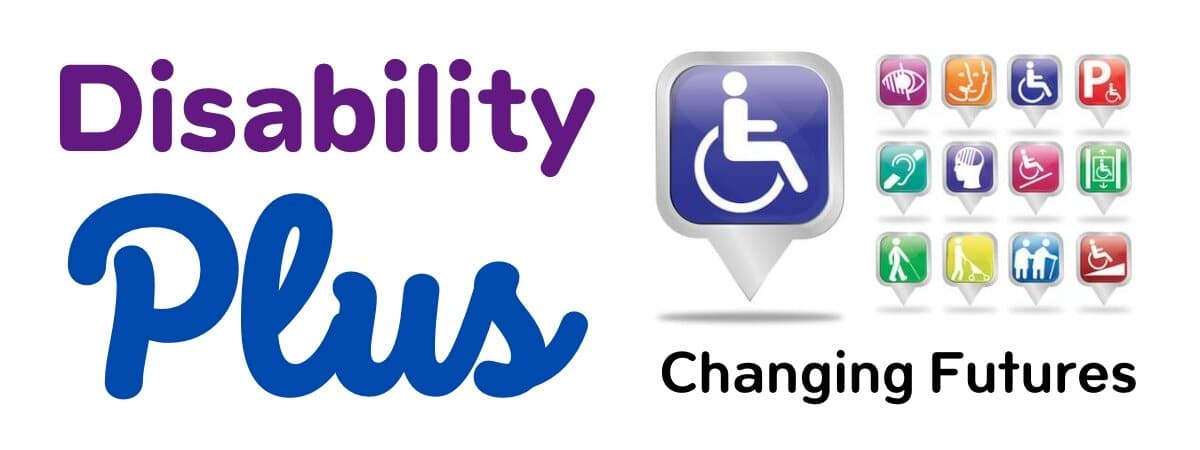
Enquiries
Self-Pay
Free Funding
Counselling?
Our Counselling & Psychotherapies start from the baseline & contributing factors of living with muscular dystrophy creating the issues you may be facing.
We know that most people we see do not have mental health conditions; they have emotional stressors & issues subjected to accessibility, discrimination, limited opportunities, physical, neurological conditions & relationships in general.
These are key issues many disabled people face daily.
Living with muscular dystrophy can have a significant emotional impact on individuals, as well as their families and caregivers. Here are some common emotional impacts:
Depression: Coping with a chronic illness like muscular dystrophy can be overwhelming, and many individuals with the condition experience depression. Symptoms of depression include feelings of sadness, hopelessness, and loss of interest in activities.
Anxiety: Living with a chronic illness can also cause anxiety, including worry about the future and disease progression.
Social isolation: Mobility limitations and the need for specialized care can make it difficult for individuals with muscular dystrophy to participate in social activities. This can lead to feelings of loneliness and isolation.
Loss and grief: Muscular dystrophy can cause loss of physical abilities and independence, leading to feelings of grief and mourning for what has been lost.
Low self-esteem: The physical changes that occur with muscular dystrophy can impact self-esteem, causing individuals to feel less confident and self-assured.
As specialists in Muscular Dystrophy Counselling, we understand these issues, which is the starting point for counselling to begin.
Support?
We support people, not with the labels of depression or anxiety, our counselling is helping clients with life’s difficulties that can be the platform for their mental health issues.
We help with:
♣ Coping with the rollercoaster of society’s challenges & perceptions
♣ Exploring your feelings & thoughts
♣ Understanding of how difficulties may have developed
♣ Management of pain and spasms
♣ Coping with different emotions
♣ Concerns about memory and changes in thinking
♣ Dealing with distress and trauma
♣ Concerns about relationships
♣ Adjusting to the reality of living with a spinal cord injury
♣ Setting realistic aspirations for the future
♣ Help with your caregiver’s relationship
Funding?
Usually, your GP will refer you to the local IAPT mental health service if you ask for support.
If you have been discharged as unsuitable for their service, we can make a free funding application for you.
If approved, the counselling is paid for you.
If applying for free funding, the first session is free.
This session is an assessment; it’s the foundation to enable us to make the application with a first-class treatment plan specific to you or the client.
Could you talk to us to see if you qualify for a free funding application or self-refer to start the funding process?
Funding can not be guaranteed; however, we have a great relationship with most NHS regions.
Referrals?
As a specialist service with a wealth of experience, we can support organisations and private people with excellent brain injury counselling and psychotherapies.
Services for
♣ Individuals
♣ Couples
♣ Care-Givers
♣ Family Members
♣ Friends
Professional Organisations
♣ National Health Services
♣ Mental Health Providers
♣ GPs
♣ Universities & Schools
♣ Solicitors & Courts
♣ Insurance Companies
♣ Businesses
Conditions?
Individuals with muscular dystrophy are at increased risk of developing mental health conditions like depression, anxiety, and post-traumatic stress disorder (PTSD).
Depression: As mentioned earlier, individuals with muscular dystrophy may experience sadness, hopelessness, and loss of interest in activities. Depression can be caused by the physical limitations and emotional stress of living with a chronic illness.
Anxiety: Anxiety is also common among individuals with muscular dystrophy. Worries about the future and the progression of the disease can lead to anxiety and the stress of managing the physical symptoms.
Post-traumatic stress disorder (PTSD): Some individuals with muscular dystrophy may develop PTSD due to the trauma of experiencing a chronic illness that affects their physical abilities and independence. PTSD symptoms can include flashbacks, nightmares, and avoidance of situations that trigger memories of the traumatic event.
Session Fees?
We offer privately-paid services from age 14.
Private pay clients are able to choose the focus, duration, and frequency of therapy.
Clients are even allowed to choose the length of sessions. Research shows that clients who have to pay something for their treatment have more positive outcomes than those who receive free treatment.
Individuals can start their vestibular disorder counselling almost immediately.
There are no waiting lists or reports being sent to GPs. It’s Confidential.
Pricing
For the general public, we heavily discounted our session fees. This enables them to access counselling easily at an affordable price.
Session Fees for 50 minutes:
♣ Initial Session £50
♣ Pay as you go £70
♣ Saver3 £180 (3 Sessions)
For those who use assistive communication devices, session times move from 50 to 70 minutes with a session fee of £90 & saver pack of 3 sessions at £220
Some people may find that self-paid is just out of reach if this is the case let us know and we can generally help with a payment plan.

Our Specialist Services
Click to Select
